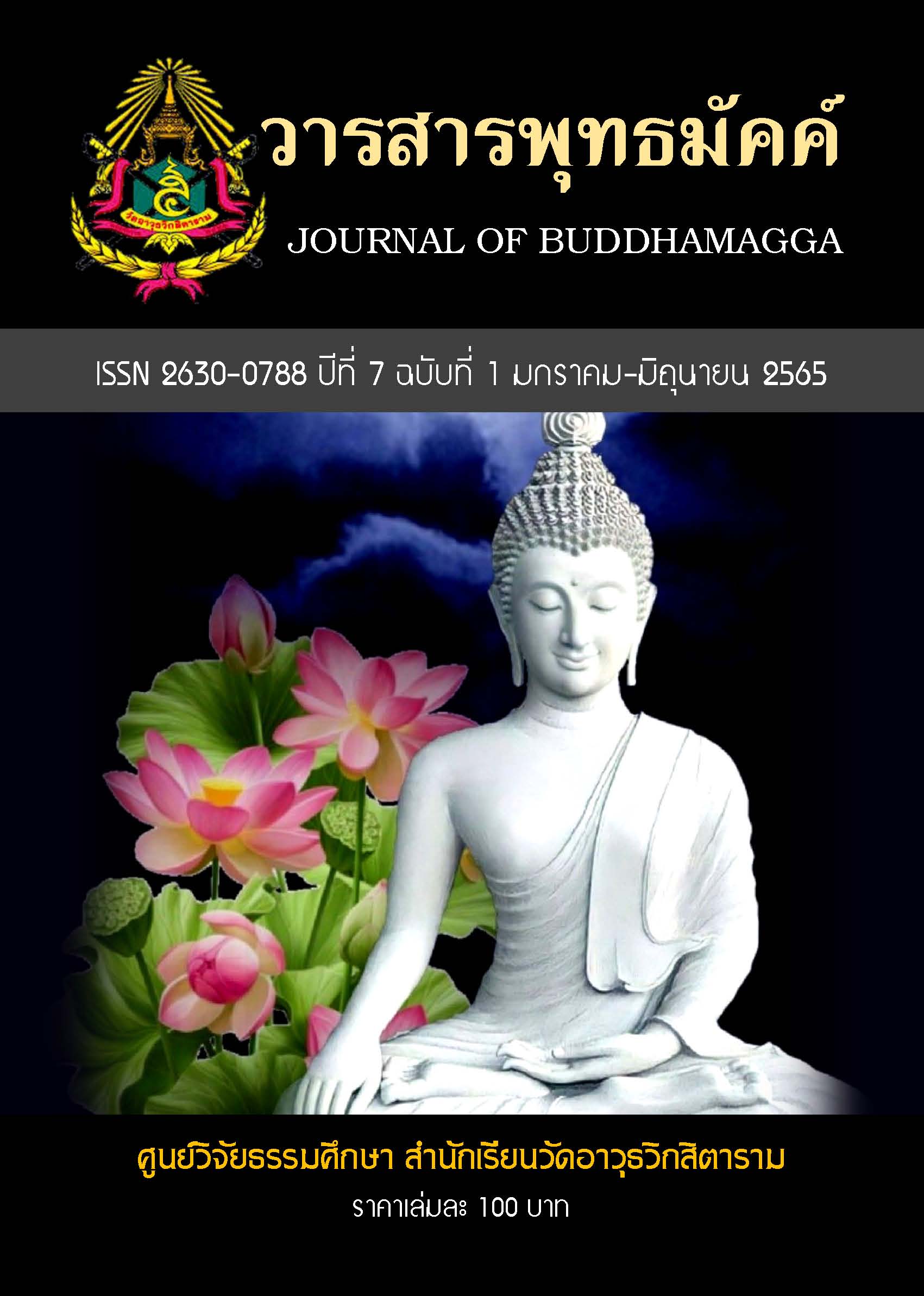ธุรกิจขนาดเล็กและขนาดกลาง (SMEs) ของไทย: รูปแบบการบริหารความเสี่ยงที่มีความสัมพันธ์กับสถานการณ์ปัจจุบันและการเชื่อมโยงสู่อนาคต บนฐานปรัชญาเศรษฐกิจพอเพียง
คำสำคัญ:
ธุรกิจขนาดเล็กและขนาดกลาง (SMEs) ของไทย, รูปแบบการบริหารความเสี่ยง, ความสัมพันธ์กับสถานการณ์ปัจจุบัน, การเชื่อมโยงสู่อนาคตบทคัดย่อ
บทความเรื่อง “ธุรกิจขนาดเล็กและขนาดกลาง (SMEs) ของไทย: รูปแบบการบริหารความเสี่ยงที่มีความสัมพันธ์กับสถานการณ์ปัจจุบันและการเชื่อมโยงสู่อนาคต” มีวัตถุประสงค์ที่จะศึกษาประเด็นเกี่ยวกับธุรกิจขนาดเล็กและขนาดกลาง (SMEs) ของไทย รูปแบบการบริหารความเสี่ยง ความสัมพันธ์กับสถานการณ์ปัจจุบันและการเชื่อมโยงสู่อนาคต บนฐานปรัชญาเศรษฐกิจพอเพียง สรุปว่า รูปแบบและหลักการบริหารความเสี่ยงบนฐานปรัชญาเศรษฐกิจพอเพียงประกอบด้วยหลักการพื้นฐาน 2 ประการ คือ “หลักโออาซีเอ (ORCA) และปัจจัยที่ทำให้การนำกรอบการบริหารความเสี่ยงไปปฏิบัติจนประสบผลสำเร็จ คือ วัตถุประสงค์ ความเสี่ยง การควบคุมภายใน และความสอดคล้องกัน และรูปแบบการบริหารความเสียงบนฐานปรัชญาเศรษฐกิจพอเพียง ประกอบด้วย รูปแบบที่หนึ่ง รูปแบบการบริหารความเสี่ยงจากการสนับสนุนจากผู้บริหารระดับสูง รูปแบบที่สอง รูปแบบการสร้างความเข้าใจความเสี่ยงตรงกัน รูปแบบที่สาม รูปแบบการบริหารความเสี่ยงที่ดำเนินการอย่างต่อเนื่อง รูปแบบที่สี่ รูปแบบการบริหารการเปลี่ยนแปลง รูปแบบที่ห้า รูปแบการสื่อสารที่มีคุณภาพเชื่อมโยงกับกลยุทธ์ รูปแบบที่หก รูปแบบระบบการวัดผลการบริหารความเสี่ยงควบคู่กับกระบวนการด้านบุคลากร รูปแบบที่เจ็ด การฝึกอบรม การสร้างองค์ความรู้ และการวางกรอบความรับผิดชอบการบริหารความเสี่ยง และรูปแบบที่แปด การติดตามกระบวนการบริหารความเสี่ยง
เอกสารอ้างอิง
Asina Pornwasin. (2016). The startup lifestyle: take off the lessons and success of Thai startups. Bangkok: Nation Books.
Anand, B., & Khanna, T. (2000). Do firms learn to create value?: The case of alliances. Strategic. Management Journal, 21, 2000): 295-315.
Arinaitwe SK. (2006). Factors Constraining the Growth and Survival of Small Scale Businesses. A Developing Countries Analysis. Cambridge. Journal of American Academy of Business, 2006): 105.
Burnes, B. (1998). Managing change: A strategic approach to organizational dynamics. (2nd ed.). London: Pitman.
Chakkree Sricharumedhiyan and Chutima Sricharumedhiyan. (2020). The Strategy for Organization Adjustment in 4.0 Era. Buddhist magazine Dhamma Study Center for Students of Wat Awutvikasitaram. Vol. 5, No.1 (January - June, 2020): 34-62.
Department of Research Management and Educational Quality Assurance. (2017). Blueprint Thailand 4.0: Model to drive Thailand towards prosperity Stable and sustainable. [Online]: https://waa.inter.nstda.or.th/stks/pub/2017/20171114-draeqa-blueprint.pdf. (Retrieved January 12/2021).
Davis, Joe C. and Gonzalez, Jorge G. (2003). Scholarly Journal Articles about the Asian Tiger Economies: Authors. Journals and Research Fields, 198-2001. Asian-Pacific Economic Literature. (17 (2), 2003): 51-61.
Harrison, A., & Hoek, R. V. (2001). Logistics management and strategy: Competing through the supply chain. (3rd ed.). Harlow, England: Prentice Hall.
Mason Moya K. (2009). Research on Small Businesses. Journal of Management Information Systems. 2009: 86-89.
Office of Small and Medium Enterprises Promotion. (OSMEP). (2021). [Online]: https://www. sme.go.th/th/?.
Research on Small Business. A Paper. [Online]: http://www.moyak.com/papers/small-business- failure.html. Mcintyre, G. (2020).
Sarel, Michael. (1996). Growth in East Asia: What we can and what we cannot infer. (Vol. 1). International Monetary Fund.
Tennyson, R., & Wide, L. (2000). The guiding hand: Brokering partnerships for sustainable development. Turin, Italy: United Nations Department of Public Information.
Uddin, M. B., & Akhter, B. (2011). Strategic alliance and competitiveness: Theoretical framework. International Refereed Research Journal. (2 (1), 2011): 43-54.
Vararat Khewpairee. (2017). Risk Assessment Compatible with Sufficiency Economy Philosophy of Community Enterprise in Bangkok. Academic Journal Thonburi University. (Volume 11 Issue 25 May-August, 2017): 43-55.
Van Montfort, K. (2006). Life cycle characteristics of small professional service firms. [ออนไลน์]: http://www.allbusiness.com/managementcompanies-enterprises/1187656-1 .html. (Retrieved January 22/2021).
Wichan Chaion. (2016). Academic Focus Thailand 4.0. [Online]: http://dl.parliament.go.th/ handle/lirt/493129. (Retrieved January 12, 2021).
William M. Pride, O. C Ferrell, Bryan A. Lukas, Sharon Schembri, Outi Niininen. (2012). Marketing Principles. Australia: Cengage Learning.
Yupaporn Yupa. (2019). Strategies and Management. Journal of Research and Development Institute, Rajabhat Mahasarakham University. (Vol. 6 No.1 January-June, 2019): 353-362.
ดาวน์โหลด
เผยแพร่แล้ว
รูปแบบการอ้างอิง
ฉบับ
ประเภทบทความ
สัญญาอนุญาต
ลิขสิทธิ์ (c) 2022 พุทธมัคค์

อนุญาตภายใต้เงื่อนไข Creative Commons Attribution-NonCommercial-NoDerivatives 4.0 International License.



